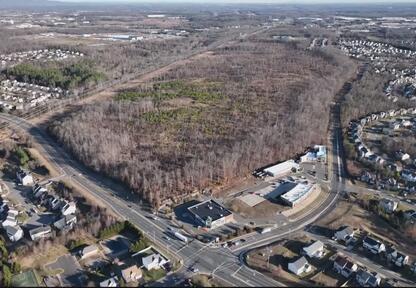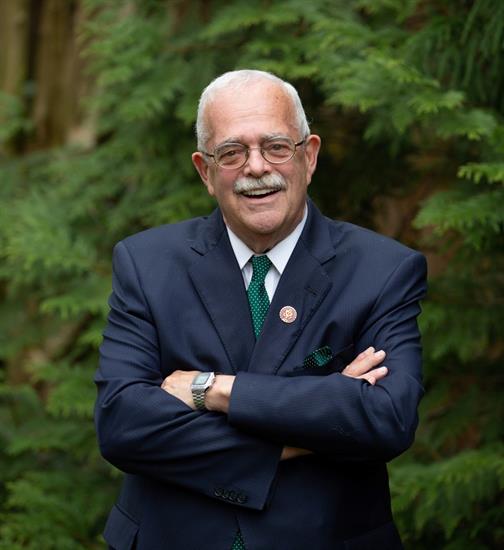Devlin Technology Park & The (Not-So) Silent War on Housing
by Kenny Boddye, Occoquan District Supervisor
With the Devlin Tech Park vote, we mark the rezoning of the final parcel in what could have been Stone Haven, a proposed vibrant town center in Bristow. In talking to concerned community members these past weeks, I have often been asked, “How did we get here?”
The answer stretches back more than a decade and is a stark reminder of what can happen when political incentives and expediency override forward-thinking, people-first land use policies. It is a tale of what happens when housing is demonized and, one by one, planned neighborhoods are swallowed into the abyss of data center development. Here’s more on the history:
- 2012: The Board of Supervisors directed County planning staff to study 800+ acres in Bristow, between Devlin and Linton Hall roads. That study, which included an analysis of infrastructure needs and four public engagement meetings, resulted in the Stone Haven proposal, featuring 1,650 residential units, over 1M square feet of commercial space, significant open space, a dedicated high school site and a potential middle school site. Plans included a cohesive network of improved roads and trails, with the density to support a VRE station and create transit-oriented development.
- 2014: Nearby residents raised objections to the proposed development. In her successful bid for Brentsville Supervisor, Jeanine Lawson noted opposition to new housing, including Stone Haven. Within weeks of her winning the election, the project was put on hold indefinitely.
- 2015 – 2019: In a successful strategy to stymie housing development, Supervisor Lawson oversaw a piecemeal rezoning of the former Stone Haven parcels. The majority were included in a newly created Data Center Overlay District. During this time, Amazon, Google, Microsoft and other industry leaders purchased much of the Stone Haven land. What could have been a vibrant, mixed-use destination in Bristow was instead approved to be a massive series of data center campuses adjacent to existing homes and schools. This left only the Hunter and Devlin properties as the major parcels zoned for housing.
- 2021: In line with the now-existing development pattern, the Board approved a data center campus at the Gainesville Tech Park on Wellington Road, and then the Hunter property, adjacent to portions of Amberleigh Station and Piney Branch Elementary School. I cast the sole no-vote against the Hunter rezoning. The project had support from the Brentsville Planning Commissioner, Patty McKay, and was championed by Supervisor Lawson. This left Devlin as the last Stone Haven parcel zoned for housing. With their votes, the Brentsville representatives set the stage for a neighborhood that would be fully encompassed by data centers if not rezoned.
- 2022: Supervisor Lawson enthusiastically partnered with Stanley Martin to propose changing the housing zoned at Devlin to Data Centers, explaining the proposal could be a better fit for the area than residential. She said the property has a limestone bed and would require more intense work for residential construction compared to a data center.
- 2023: The Board was faced with leaving the existing Devlin zoning in place, allowing for new housing surrounded by intense data center use, or adjusting the zoning to allow for less intensive data center use (with 85 acres left as open space next to Chris Yung and Lanier Farms) adjacent to the Data Center Overlay and across the road from existing housing. Tuesday Night’s rezoning puts the Devlin parcel in line with the development pattern that began in 2015, which strategically dismantled the Stone Haven proposal parcel by parcel.
We can’t unwind the legacy of elected officials who fought – and continue to fight – against meeting the housing needs of Prince William County. From data centers where neighborhoods and commerce should be to the skyrocketing cost of living, we are all living with the realities of decades of anti-housing land use policy. Low income communities, communities of color, and other vulnerable communities are particularly hurt by anti-housing policies. However, we can and must make better choices moving forward. It is time to start building a new legacy.
At the end of the day, anti-housing policies are anti-people policies. I can’t think of a land use case that illustrates this more clearly than the cynical dismantling of Stone Haven. I for one will not look away from the lessons of this cautionary tale.
I am ready to explore solutions that better balance the needs for housing and supportive infrastructure while also preserving open spaces. Additionally, I look forward to strengthening our commercial tax base while better managing the proliferation of the data center industry in Prince William County. I hope that you remain engaged in these important community conversations.
(Editor’s Note: This article has been updated to reflect that Patty McKay was the Brentsville Planning Commissioner during the Hunter Property vote.)


